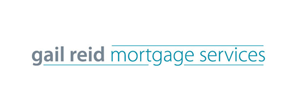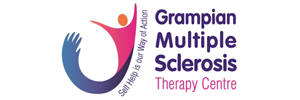
Confused about your Health and Safety responsibilities? We’re here to help. For small or new start-up businesses, you might be…

Outsourced Payroll Simplified Payroll Solutions and Services for UK companies with our low fixed fees, we help keep costs to…

We provide online Health & Safety and HR Compliance courses! These courses now start from £19.99 plus VAT for standard…

Are you managing your GDPR implementation internally but need some support? We offer a GDPR Compliance Pack. This is ideal…

Essential learning solutions for business owners and line managers Our courses are perfect for upskilling individuals, and they can also…
As Ramadan, the holy month of fasting for Muslims, unfolds, it's an opportune time for non-Muslim colleagues to offer support and understanding to their Muslim peers. Ramadan isn't just about abstaining from food and drink during daylight hours; it's a time of spiritual reflection, increased devotion, and community bonding.
In this blog post, we'll explore practical ways non-Muslim employees can show solidarity and make the fasting experience more manageable for their Muslim colleagues.

Take the initiative to learn about Ramadan and its significance. Understand that fasting isn't merely about abstaining from food and drink; it's a period of self-discipline, introspection, and heightened spirituality for Muslims. Familiarise yourself with common Ramadan practices, such as suhoor (pre-dawn meal), iftar (breaking the fast), and taraweeh prayers.
Respect your Muslim colleagues' decision to fast and refrain from eating and drinking during daylight hours. Avoid scheduling important meetings or events that involve food during fasting times whenever possible. Be mindful of cultural sensitivities and refrain from making jokes or insensitive comments about fasting.

Recognise that fasting can affect energy levels and productivity. Be flexible with deadlines and work schedules to accommodate any changes in your Muslim colleagues' routines during Ramadan. Allow them to adjust their work hours or take short breaks for prayers if needed. Showing understanding and support will foster a more inclusive and compassionate work environment.
Express empathy towards your Muslim colleagues by acknowledging the challenges they may face while fasting, such as fatigue or hunger. Offer words of encouragement and support, and let them know that you're there to help if they need assistance with any tasks or projects. Small gestures of kindness can go a long way in making Ramadan easier for them.

Take this opportunity to foster inclusivity and promote diversity within your workplace. Organise cultural awareness sessions or Ramadan-themed events to encourage dialogue and understanding among colleagues of different backgrounds. Consider participating in iftar gatherings or volunteering for charitable activities together as a team.
While it's essential to show support, respect your Muslim colleagues' privacy and personal boundaries. Avoid asking intrusive questions about their fasting practices or religious beliefs unless they willingly share such information. Remember that everyone's Ramadan experience is unique, and some individuals may prefer to keep it private.

As Ramadan culminates with the joyous celebration of Eid al-Fitr, take the opportunity to extend warm wishes to your Muslim colleagues. Recognise the significance of this festive occasion, which marks the end of fasting and the beginning of a time of joy, gratitude, and communal celebration. Offer heartfelt greetings such as "Eid Mubarak" or "Happy Eid" to show your respect and solidarity.
By demonstrating empathy, respect, and inclusivity, non-Muslim employees can play a vital role in supporting their Muslim colleagues during Ramadan. Small acts of kindness and understanding can make a significant difference in nurturing a workplace environment where everyone feels valued and respected. Let's use this opportunity to come together, learn from one another, and celebrate the diversity that enriches our workplaces and communities.
Ramadan Mubarak to all who observe!
First Floor, Office 20,
Balmoral Hub, Building 1,
Balmoral Business Park,
Loriston, AB12 3JG

Copyright © 2022 hrhubplus.com. Registered Office: First Floor, Office 20, Balmoral Hub, Building 1 , Balmoral Business Park, Loriston, Aberdeen, Scotland, AB12 3JG. Registered in Scotland SC584928.
| Cookie | Duration | Description |
|---|---|---|
| cookielawinfo-checkbox-analytics | 11 months | This cookie is set by GDPR Cookie Consent plugin. The cookie is used to store the user consent for the cookies in the category "Analytics". |
| cookielawinfo-checkbox-functional | 11 months | The cookie is set by GDPR cookie consent to record the user consent for the cookies in the category "Functional". |
| cookielawinfo-checkbox-necessary | 11 months | This cookie is set by GDPR Cookie Consent plugin. The cookies is used to store the user consent for the cookies in the category "Necessary". |
| cookielawinfo-checkbox-others | 11 months | This cookie is set by GDPR Cookie Consent plugin. The cookie is used to store the user consent for the cookies in the category "Other. |
| cookielawinfo-checkbox-performance | 11 months | This cookie is set by GDPR Cookie Consent plugin. The cookie is used to store the user consent for the cookies in the category "Performance". |
| viewed_cookie_policy | 11 months | The cookie is set by the GDPR Cookie Consent plugin and is used to store whether or not user has consented to the use of cookies. It does not store any personal data. |












